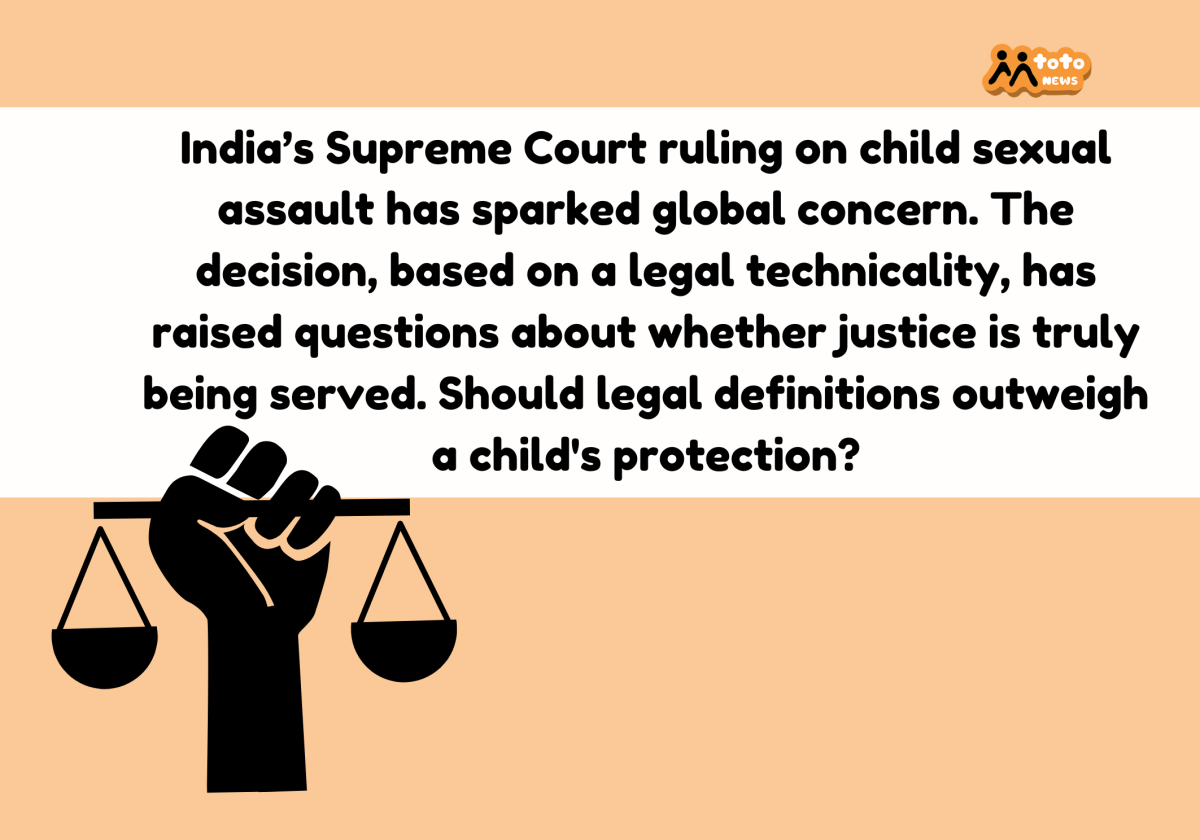Written by Jermaine Magethe
A recent ruling in India has triggered shockwaves in not only India but the rest of the world. The indian supreme court decision that was largely based on a technicality to downplay the gravity of the crime itself based on whether attempted rape or sexual assault. This is contrary to The Protection of Children from Sexual Offences (POCSO) Act, 2012, enacted to protect children from sexual offenses.So the question arises is this a judicial faux pas in protecting the child by clinging to a technicality?
The accused in this case are an 11-year-old girl whose mother accused the two suspects of giving her daughter a ride on their motorcycle, promising to return her home.The accused stopped the motorcycle on the way to the village and started grabbing her breasts,” reads the high court ruling, noting that one of the men pulled her under a culvert and “broke her pajama [lower garment] string.
Section 7 of POCSO defines sexual assault as any physical contact act of a sexual nature, and Section 9 specifically defines aggravated sexual assault, applicable where the child is below the age of 12 years.”.
Secondly, Section 511 of the IPC provides for punishment of an attempt to commit an offense. The court in discussing the chain of events leading to the said crime not only belittles the physical and psychological harm to the child but also dilutes the child protection law by laying too much importance on technicalities.
The court’s ruling, whether intentional or the result of judicial oversight, risks reducing this debate to technicalities. It sends a perilous message: that the law can be too lenient, that technicalities can allow perpetrators to escape complete responsibility. In a country where victims already fear reporting for fear of repercussions, such interpretations can discourage others from reporting, and embolden culprits even more.
India has witnessed some top-level cases wherein the judiciary was tested on the issue of sexual violence. The legendary Nirbhaya case, for instance, created a huge public outcry and led to serious legal changes. The case not only revolutionized public language surrounding rape but also led to a hardening of laws and stringent punishment for those who committed such crimes. It is with irony that the latest ruling seems to undo these gains.
This is not simply a matter of legal semantics but also one of a child’s dignity, rights, and welfare.
To allow the issue of whether it was a consummate rape or an attempt to distract from the fact of the violation inherent is unfair to a child’s body and mind. A justice of wholeness would recognize that every instance of sexual exploitation, regardless of how it is categorized, has profound and long-term consequences.

